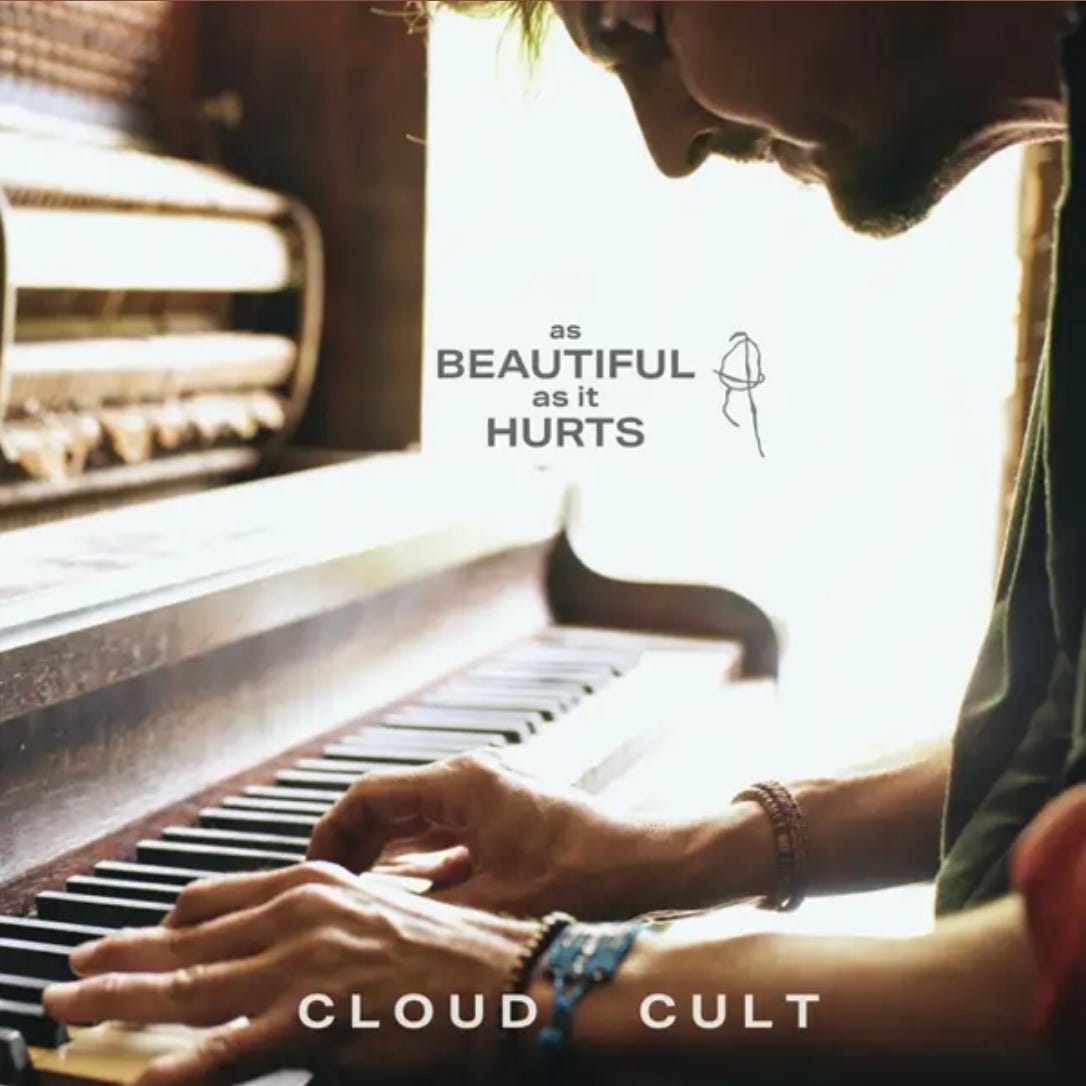I’m writing to you today from the campus of Montreat College in the North Carolina mountains, one of my absolute favorite places on earth. Can you feel the crisp air? Can you hear the roar of the waterfall, or the cawing of crows high in the trees? When I was young and still going to church, I came here every summer for a week-long summer conference on worship and music, where I’d sing in choir, ring handbells, go to Bible study, and play capture the flag in the fields. These days, my mom (organist for fifty years at the church I grew up in, now retired) still attends, and I usually visit for a few days during the week she’s here. While she goes to classes, I spend my free time perched with a stack of books on whatever free bench I can find, and though the religious aspect of the place doesn’t resonate with me like it once did, I still find a lot of peace in these hills.
Currently reading
The Echo Wife by Sarah Gailey tells the story of Evelyn, a scientist who specializes in human cloning, whose husband has just divorced her… for a clone… OF HER. What a hook!! She is a prickly person (described by said ex-husband as a hornet) with a dark past, and while I didn’t necessarily like her or agree with many of her choices, she does make for a compelling narrator.
Because of the interesting and surprising turns the story takes along the way, and the growing sense of dread throughout, the ending felt a little anticlimactic and lackluster. Still, it’s a quick, immersive, and enjoyable book overall. I’d say the acknowledgments are a must, too—I appreciated the novel even more after reading them.
Oh, and I have to mention that I found another tree fact (the streak continues!): “crown shyness” is when “the branches try not to touch each other, and their leaves grow to avoid competition for sunlight” (246). Is there a human version of crown shyness? I think I might have whatever that is.
This morning I’m also wrapping up Ross Gay’s Inciting Joy, a collection of thoughtful, funny, meandering, earnest, digging-deep essays, each one about a particular source of joy—the garden, time, losing your phone, dancing, and falling apart, to name a few. I had the pleasure of hearing Ross speak at my local indie bookstore back in April, and I’m delighted to report that the warmth and care he exudes in person is fully there in his writing as well.
And the digressions! At this event, he was constantly interrupting himself, getting distracted, following tangents, and sharing related anecdotes before ultimately making his way back to the original point, and as someone who does the same thing in conversations (and in thought processes, let’s be real, the tendency doesn’t require another person’s presence to be true), I was utterly charmed. Well, the essays are the same way. There are tons of footnotes, some of them multiple pages long, and often an idea will wind its way through a few different seemingly-unrelated stories before looping back around to stick the landing—which it always does, in the end.
I could go on and on about this book. These essays made me want to break up with my phone (again), get my back yard into shape for a garden plot (finally), compose a list of favorite (existing) and most-longed-for (hypothetical) cover songs, create more art, and be less shy about dancing in public. I absolutely loved all of it. If poking around in the complexities of human emotion is your jam and you’re down to follow a kind-hearted genius down a rabbit hole or two along the way, I bet you will too.
Currently listening
I’ll keep this part short and sweet, because there’s really only one song I can think of that knocked me sideways this week: “As Beautiful As It Hurts” by Cloud Cult.
Cloud Cult is a long-time favorite band of mine, and they often make experimental, sometimes shouty, music about figuring out who we are as humans and why we’re here and where we came from and how we fit into the universe. This new single, though, is quiet and vulnerable, starting out with just piano and voice, and slowly building to include some gorgeous cello and violin toward the end. It’s about regret, and fucking up, and holding space for grief but also looking forward to the better things that are coming. Come to think of it, it plays quite well with the themes in Ross Gay’s essays. I love when that happens.
It’s the spin on the stories we tell It’s making friends with our wounded self It’s giving thanks when it’s going well And keeping hope when it goes to hell
Haiku round-up
It feels like summer is really, finally here, and I spent a good portion of the last week outside: with Jordan on our front porch, at a children’s science museum with our nephews, at the pool with some friends, and now in the mountains with my mom. I want more! Cool beverages, flowing garments, and the weightless feeling of existing in a body of water. Let’s go.
Monday, June 10
It’s okay to spend a whole day making something that’s only for you
Tuesday, June 11
Tiny hand, waving Tiny voice, chanting “bah! bah!” I could burst with love
Wednesday, June 12
This role has become as effortless and dear as well broken-in boots
Thursday, June 13
The season’s change brings renewed curiosity and unrestrained glee
Friday, June 14
Soft, tentative voice, singing hope and gratitude, over and over
Saturday, June 15
It’s sunny and hot Grab your swimsuit, sunscreen, snacks Let’s go to the pool
Sunday, June 16
Through a stone archway, into rhododendron shade: yearly homecoming
Until next time
I think Ross Gay must have heard what I was saying last week about photographing and sharing experiences, or, more accurately, he completely beat me to it. So here’s a benediction of sorts, from the “Losing Your Phone” chapter of Inciting Joy:
…could we please not look it up, could we please take fewer pictures, could we please just be here together for a sec without documenting that we were, I swear to you life is still life even when you don’t take a picture of it… (85)
See you next week, and until then, raise your hand if you want garlic breadsticks!





